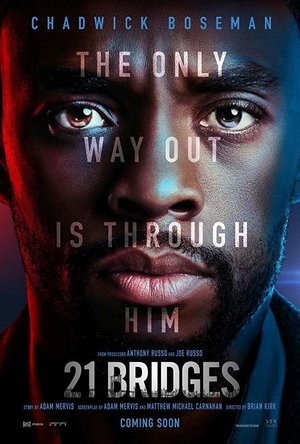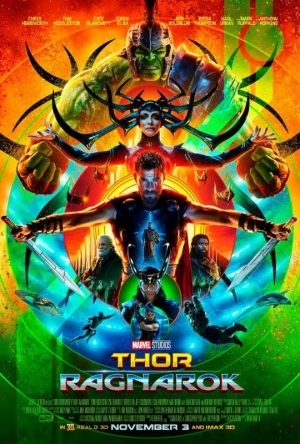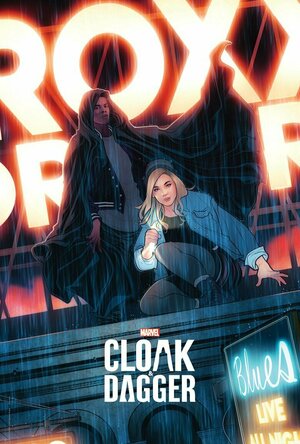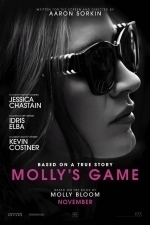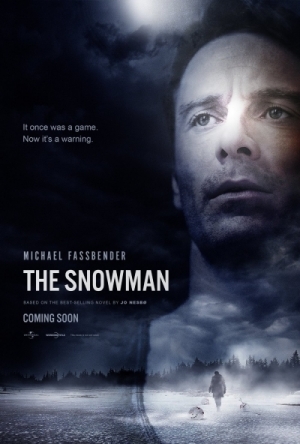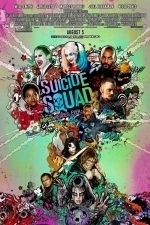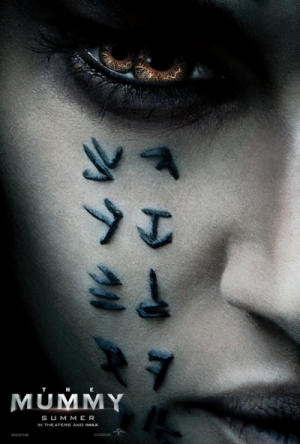Search
BankofMarquis (1832 KP) rated 21 Bridges (2019) in Movies
Sep 22, 2020
Direction and Lead Performances elevate a "so-so" script
The world lost a tremendous talent when 44 year old Chadwick Boseman lost his battle with cancer. Whether it was as Jackie Robinson in 42, Thurgood Marshall in THURGOOD or as T'Challa/Black Panther in the Marvel movies, Boseman's charm and charisma lept off the screen and drew you into whatever project he is in.
This charm and charisma is very much in evidence in the by-the-book cops chasing robbers action flick 21 BRIDGES. As the cop chasing "the fugitive", Boseman elevates the proceedings to a level above what this average script had to offer.
Set in NYC, 21 BRIDGES tells the tale of Detective Andre Davis (Bozeman) who must chase down a couple of thieves - and cop killers - before they can escape New York. Told in one night, Davis makes the call to close the "21 Bridges" of the island of Manhattan so the bad guys are stuck on the island.
And...that's the first disappointment with this film, it doesn't do anything with that premise. Do the bad guys try to escape on one of those "21 Bridges"? Nope. The bridges are never really mentioned again...so why call this film "21 Bridges"?
What does work is Boseman's performance. His Davis is competent, honest, smart and earnest and you are drawn into his work. As is the work of the person who is thrust into the action as his partner, Vice Cop Frankie Burns (Sienna Miller). You might roll your eyes when you hear Miller's name for her early career was more about being on the tabloid pages than it was about being on the screen, but she has morphed herself - and her career - into something quite interesting through turns in films like FOXCATCHER and AMERICAN SNIPER and she is as equally interesting as Bozeman in this film. The 2 make a good pair.
The rest of the supporting cast - Taylor Kitsch, Keith David and the great J.K. Simmons - are solid, if not spectacular. But there are 2 standouts. Alexander Siddig (Dr. Bashir in STAR TREK: DEEP SPACE 9) is interesting as the "money launderer" and Stephan James (IF BEALE STREET COULD TALK) is just as charming and charismatic as Bozeman as one of the the thieves on the run. If you are looking for a young, charismatic actor to fill the hole created by Bozeman's death, James could very well fit the bill.
I've mentioned that the script by Adam Mervis and Matthew Michael Carnahan is nothing special, but what is special is the Direction by Brian Kirk (a TV Director of such shows as GAME OF THRONES and LUTHER). This is his Major Motion Picture debut (as far as I could tell) and there were some VERY interesting shots and some taught, tense moments. He'll be a director to watch in the future.
While nothing too special, 21 BRIDGES is better than "good enough" - a cops 'n robbers film that will hold your interest for the relatively quick 1 hour and 39 minute running time.
Letter Grade: B
7 Stars (out of 10) and you can take that to the Bank(ofMarquis)
This charm and charisma is very much in evidence in the by-the-book cops chasing robbers action flick 21 BRIDGES. As the cop chasing "the fugitive", Boseman elevates the proceedings to a level above what this average script had to offer.
Set in NYC, 21 BRIDGES tells the tale of Detective Andre Davis (Bozeman) who must chase down a couple of thieves - and cop killers - before they can escape New York. Told in one night, Davis makes the call to close the "21 Bridges" of the island of Manhattan so the bad guys are stuck on the island.
And...that's the first disappointment with this film, it doesn't do anything with that premise. Do the bad guys try to escape on one of those "21 Bridges"? Nope. The bridges are never really mentioned again...so why call this film "21 Bridges"?
What does work is Boseman's performance. His Davis is competent, honest, smart and earnest and you are drawn into his work. As is the work of the person who is thrust into the action as his partner, Vice Cop Frankie Burns (Sienna Miller). You might roll your eyes when you hear Miller's name for her early career was more about being on the tabloid pages than it was about being on the screen, but she has morphed herself - and her career - into something quite interesting through turns in films like FOXCATCHER and AMERICAN SNIPER and she is as equally interesting as Bozeman in this film. The 2 make a good pair.
The rest of the supporting cast - Taylor Kitsch, Keith David and the great J.K. Simmons - are solid, if not spectacular. But there are 2 standouts. Alexander Siddig (Dr. Bashir in STAR TREK: DEEP SPACE 9) is interesting as the "money launderer" and Stephan James (IF BEALE STREET COULD TALK) is just as charming and charismatic as Bozeman as one of the the thieves on the run. If you are looking for a young, charismatic actor to fill the hole created by Bozeman's death, James could very well fit the bill.
I've mentioned that the script by Adam Mervis and Matthew Michael Carnahan is nothing special, but what is special is the Direction by Brian Kirk (a TV Director of such shows as GAME OF THRONES and LUTHER). This is his Major Motion Picture debut (as far as I could tell) and there were some VERY interesting shots and some taught, tense moments. He'll be a director to watch in the future.
While nothing too special, 21 BRIDGES is better than "good enough" - a cops 'n robbers film that will hold your interest for the relatively quick 1 hour and 39 minute running time.
Letter Grade: B
7 Stars (out of 10) and you can take that to the Bank(ofMarquis)
Bob Mann (459 KP) rated Thor: Ragnarok (2017) in Movies
Sep 29, 2021
Guaranteeing a “safe passage through the anus”!
I’m neither a Marvel fan, nor (in particular) a Thor fan….. but I have to admit “Thor: Ragnarok” was brilliant from beginning to end.
Thor (Chris Hemsworth) has been travelling the universe in search of… stuff… (I neither remember nor care)… but returns to his home planet of Asgard with a dire warning of impending ‘Raganrok’: this being the ‘End of Days’ for Asgard. But he finds the court engaged in serious leisure time!
ragnarok4
“Shave and a hair cut… two stripes”
Things go from bad to worse when Hela (Cate Blanchett, “Carol“) – someone with more than a passing relationship to Thor – arrives with a mission to assume the throne. Teamed uncomfortably with half-brother Loki (Tom Hiddleston, “High Rise”), the brothers get cast millions of light years away to a planet lorded over by a ‘grand master’ (a lovely performance, that I will leave anonymous here) who pits new gladiators in an arena against his latest champion. You’ll never guess who his champion is? Well, OK (cos the trailer gives it away)… he’s big and green!
ragnarok2
The grand master’s champion. Opponents are green with envy.
The film’s script is hilarious. It generates an enormous volume of entertainment with laugh-out loud moments throughout; the unforseen involvement of other Marvel characters; some startling cameos all mixed with the usual brand of spectacular fights and action. Some of the action is surprising: a real eye-opener you might say.
ragnarok3
Tessa Thompson as the Valkyrie in full flight.
The lead cast (Hemsworth, Hiddleston, Blanchett and Ruffalo) all perform admirably and are joined by heavyweight cameos from Anthony Hopkins (“Westworld”) and Idris Elba (“Bastille Day“) reprising their roles from “Thor: The Dark World”. Particularly impressive is Tessa Thompson (“Creed“) as Thor’s Valkyrie warrior side-kick and Karl Urban (“Star Trek: Into Darkness“) as the turn-coat Asgardian Skurge.
ragnarok5
The real McCoy. Karl Urban as the Skurge of Asgard.
Directed by young New Zealander Taika Waititi (behind last year’s successful indie hit “Hunt for the Wilderpeople”) it’s a breath of fresh air for the Thor franchise, more similar to the style of “Guardians of the Galaxy” rather than the previous films in the series. Waititi also saves all the best comedy lines for himself as the ‘rock warrior’ character Korg: his New Zealand twang delivering just side-splitting dialogue.
Hela (Cate Blanchett)
Hela may be a super-villain, but she still hasn’t learned to hold a hammer by the right end.
As with most Marvel films, its a little bit flabby in places, running to 130 minutes: some of the dialogue, particularly scenes between Hemsworth and Ruffalo, feel like they needed tightening up in the editing suite. This time of course includes the scrolling of endless teams of visual effect artists in the closing titles which – naturally – 90% of the audience stay for to see if there are any “monkeys“. In fact,there are two: one fairly early on; the other right at the end. (To be honest, I thought neither of them was particularly worth waiting for).
However overall the movie is highly recommended for a fun night out at the cinema.
Thor (Chris Hemsworth) has been travelling the universe in search of… stuff… (I neither remember nor care)… but returns to his home planet of Asgard with a dire warning of impending ‘Raganrok’: this being the ‘End of Days’ for Asgard. But he finds the court engaged in serious leisure time!
ragnarok4
“Shave and a hair cut… two stripes”
Things go from bad to worse when Hela (Cate Blanchett, “Carol“) – someone with more than a passing relationship to Thor – arrives with a mission to assume the throne. Teamed uncomfortably with half-brother Loki (Tom Hiddleston, “High Rise”), the brothers get cast millions of light years away to a planet lorded over by a ‘grand master’ (a lovely performance, that I will leave anonymous here) who pits new gladiators in an arena against his latest champion. You’ll never guess who his champion is? Well, OK (cos the trailer gives it away)… he’s big and green!
ragnarok2
The grand master’s champion. Opponents are green with envy.
The film’s script is hilarious. It generates an enormous volume of entertainment with laugh-out loud moments throughout; the unforseen involvement of other Marvel characters; some startling cameos all mixed with the usual brand of spectacular fights and action. Some of the action is surprising: a real eye-opener you might say.
ragnarok3
Tessa Thompson as the Valkyrie in full flight.
The lead cast (Hemsworth, Hiddleston, Blanchett and Ruffalo) all perform admirably and are joined by heavyweight cameos from Anthony Hopkins (“Westworld”) and Idris Elba (“Bastille Day“) reprising their roles from “Thor: The Dark World”. Particularly impressive is Tessa Thompson (“Creed“) as Thor’s Valkyrie warrior side-kick and Karl Urban (“Star Trek: Into Darkness“) as the turn-coat Asgardian Skurge.
ragnarok5
The real McCoy. Karl Urban as the Skurge of Asgard.
Directed by young New Zealander Taika Waititi (behind last year’s successful indie hit “Hunt for the Wilderpeople”) it’s a breath of fresh air for the Thor franchise, more similar to the style of “Guardians of the Galaxy” rather than the previous films in the series. Waititi also saves all the best comedy lines for himself as the ‘rock warrior’ character Korg: his New Zealand twang delivering just side-splitting dialogue.
Hela (Cate Blanchett)
Hela may be a super-villain, but she still hasn’t learned to hold a hammer by the right end.
As with most Marvel films, its a little bit flabby in places, running to 130 minutes: some of the dialogue, particularly scenes between Hemsworth and Ruffalo, feel like they needed tightening up in the editing suite. This time of course includes the scrolling of endless teams of visual effect artists in the closing titles which – naturally – 90% of the audience stay for to see if there are any “monkeys“. In fact,there are two: one fairly early on; the other right at the end. (To be honest, I thought neither of them was particularly worth waiting for).
However overall the movie is highly recommended for a fun night out at the cinema.
Lee (2222 KP) rated Cloak & Dagger in TV
Aug 10, 2018
While I'm a massive fan of the Marvel Cinematic Universe, I never really seem to get on so well with the Marvel TV shows. I get bored, frustrated or just run out of patience with the TV format, with Luke Cage being my longest run so far at 8 episodes. I decided to give Cloak and Dagger a shot, knowing absolutely nothing about about it, and with low expectations after reading the synopsis. I was pleasantly surprised.
The show begins with two young children, following very different lives. Tandy is returning from a ballet class in the back of her fathers car, Tyrone hanging out with his older brother and a gang of boys looking to steal a car radio. As Tyrone and his brother flee from the cops and Tandy and her father are crossing a bridge, fate leads them down a similar path. A drilling platform off the coast of New Orleans explodes, sending the car crashing into the ocean, and causing one of the cops chasing the boys to panic, shooting Tyrones brother dead while Tyrone escapes into the ocean. Unfortunately, Tandy's father doesn't make it, and both Tandy and Tyrone are suddenly caught in a mysterious wave of energy which ripples out from the collapsing platform.
8 years later and both kids are alive and still leading very different lives. They begin to discover that they have abilities, although it's not clear for much of the season exactly what those abilities are and how well they can be used. Tandy can generate bright white daggers from her hands and Tyrone can teleport randomly. Also, when Tandy touches somebody, she can see their hopes. When Tyrone touches somebody, he can see their fears. It all seems a bit pointless for a while, so luckily for us the rest of the story, along with the supporting cast, is all pretty strong. Tandy is investigating Roxxon, the company responsible for the exploding platform. Her father also worked for Roxxon, who seem determined to tarnish his good name and do anything possible to cover up whatever it is they're up to. Meanwhile Tyrone is out to see the cop who shot his brother, and was never punished for it, finally brought to justice.
Along the way, their paths cross, and it becomes clear that their powers are more effective when they're together. This all comes to a head in episode 7, where they both enter the mind of a man who has been in a comatose state since working on the drilling platform eight years ago. They must repeatedly relive the few minutes before the explosion until they can figure out what happened and how to stop it in order to free the man. It's the kind of plot I absolutely love, and one which gets used a lot in TV shows, most recently in the last season of Star Trek Discovery. I loved it then, and I loved it now.
While the season finale was a bit of a strange mish-mash, it didn't matter for me as I loved the rest of the season so much. A bit of a slow burn at times, but with a good story and characters to keep things moving nicely. Nice to know that season 2 has been given the go ahead too.
The show begins with two young children, following very different lives. Tandy is returning from a ballet class in the back of her fathers car, Tyrone hanging out with his older brother and a gang of boys looking to steal a car radio. As Tyrone and his brother flee from the cops and Tandy and her father are crossing a bridge, fate leads them down a similar path. A drilling platform off the coast of New Orleans explodes, sending the car crashing into the ocean, and causing one of the cops chasing the boys to panic, shooting Tyrones brother dead while Tyrone escapes into the ocean. Unfortunately, Tandy's father doesn't make it, and both Tandy and Tyrone are suddenly caught in a mysterious wave of energy which ripples out from the collapsing platform.
8 years later and both kids are alive and still leading very different lives. They begin to discover that they have abilities, although it's not clear for much of the season exactly what those abilities are and how well they can be used. Tandy can generate bright white daggers from her hands and Tyrone can teleport randomly. Also, when Tandy touches somebody, she can see their hopes. When Tyrone touches somebody, he can see their fears. It all seems a bit pointless for a while, so luckily for us the rest of the story, along with the supporting cast, is all pretty strong. Tandy is investigating Roxxon, the company responsible for the exploding platform. Her father also worked for Roxxon, who seem determined to tarnish his good name and do anything possible to cover up whatever it is they're up to. Meanwhile Tyrone is out to see the cop who shot his brother, and was never punished for it, finally brought to justice.
Along the way, their paths cross, and it becomes clear that their powers are more effective when they're together. This all comes to a head in episode 7, where they both enter the mind of a man who has been in a comatose state since working on the drilling platform eight years ago. They must repeatedly relive the few minutes before the explosion until they can figure out what happened and how to stop it in order to free the man. It's the kind of plot I absolutely love, and one which gets used a lot in TV shows, most recently in the last season of Star Trek Discovery. I loved it then, and I loved it now.
While the season finale was a bit of a strange mish-mash, it didn't matter for me as I loved the rest of the season so much. A bit of a slow burn at times, but with a good story and characters to keep things moving nicely. Nice to know that season 2 has been given the go ahead too.

CNET: Best Tech News & Reviews
News and Shopping
App
CNET, the #1 source for tech news and reviews, puts the biggest stories of the day and expert advice...

République
Games and Entertainment
App
In “Episode 5: Terminus," the fifth and final episode of the thrilling République saga, battle...
Bob Mann (459 KP) rated Molly's Game (2017) in Movies
Sep 29, 2021
Wordy but entertaining.
You can never accuse Aaron Sorkin of skimping on his words. Sorkin is of course the award-winning writer of “The West Wing” but on the big screen he has also written many classics: “A Few Good Men”; “The Social Network” and “Steve Jobs” for example. Here he also makes his directorial debut in a movie about the true-life turbulent career of Olympic wannabe skier Molly Bloom.
Bloom is played by Jessica Chastain, from films such as “Zero Dark Thirty” and “Miss Sloane” (one of my films of the year last year). Chastain’s roles as an actress are often quite cold and calculating, as suits her demeanour. As such her characters are not often easy to warm to in movies (and as such, my wife is not a fan).
Taking the piste. Molly in her younger ski-centric role.
Here as Molly Bloom she is as equally driven as in “Miss Sloane“, but the drive is learned from her father (Kevin Costner), bullying her to be the best she can be at skiing in a highly competitive family. Forced out of the skiing business (for reasons I won’t spoil), she takes a “gap year” from law school that turns into a “gap life” after she falls into the slightly shady business of running poker nights for LA’s rich elite. It’s here that Chastain’s Bloom is able to show a gentler and more compassionate side, trying to talk some of her clients (who invariably fall in love with her) off the ledge of their gambling addiction.
Chris O’Dowd as one of the punter’s in deep.
Sorkin’s script (based on Molly’s own autobiography, I should add) does a really nice job of cutting backwards and forwards through Molly’s timeline to drill into motivations and her mental state, and in doing so he pulls out an award-winning (or at least Golden-Globe award-nominating) performance from Chastain in the process. Also very effective though is Kevin Costner (“Hidden Figures“, “Man of Steel“), who is quietly building an impressive portfolio of supporting actor roles. Here he rather dials in his “tough and aloof guy” performance until the park bench scene (below) where he surprises in a good way.
Benches with wolves. Kevin Costner impressive as Molly’s hard-line father.
It’s also a blessed relief to find a decent vehicle to showcase the undoubted talents of Britain’s Idris Elba – an actor who has been woefully served by rubbish such as “Bastille Day“, rather lame sequels like “Star Trek: Beyond” or minor roles such as in “Thor: Ragnarok“. Here he can really get his teeth into the role of Molly’s lawyer, with a multi-layered character that reveals a little – but not too much of – his back-story to leave you with intriguing questions.
An indecisive Charlie Jaffey (Idris Elba) can make his mind up about Molly (Jessica Chastain).
So it’s a good film, but an intelligent watch that mandates your attention. The script is sufficiently dense and wordy that it requires significant concentration: this is not a “park your brain at the door” type of ‘Michael Bay film’. (As such, while it remains a recommended watch, I’m not sure it would be one that would necessarily make my DVD list for repeat watchings).
Michael Cera (centre) as the mysterious but powerful “Player X”; a Hollywood actor, but who is he supposed to be? (Answers on a postcard!).
But again, I must comment on what an amazing year this is turning out to be for women in film. Less #Me-too and more #She-do! Once again, here is a movie where a confident woman is firmly in the driving seat, and while powerful men try to bring her down, it is not them that succeeds. (The studio bill for talent in the past year must be a LOT less than it was the year before! #don’tshootme #topicalhumour #CarrieGracey). #TimesUp.
Bloom is played by Jessica Chastain, from films such as “Zero Dark Thirty” and “Miss Sloane” (one of my films of the year last year). Chastain’s roles as an actress are often quite cold and calculating, as suits her demeanour. As such her characters are not often easy to warm to in movies (and as such, my wife is not a fan).
Taking the piste. Molly in her younger ski-centric role.
Here as Molly Bloom she is as equally driven as in “Miss Sloane“, but the drive is learned from her father (Kevin Costner), bullying her to be the best she can be at skiing in a highly competitive family. Forced out of the skiing business (for reasons I won’t spoil), she takes a “gap year” from law school that turns into a “gap life” after she falls into the slightly shady business of running poker nights for LA’s rich elite. It’s here that Chastain’s Bloom is able to show a gentler and more compassionate side, trying to talk some of her clients (who invariably fall in love with her) off the ledge of their gambling addiction.
Chris O’Dowd as one of the punter’s in deep.
Sorkin’s script (based on Molly’s own autobiography, I should add) does a really nice job of cutting backwards and forwards through Molly’s timeline to drill into motivations and her mental state, and in doing so he pulls out an award-winning (or at least Golden-Globe award-nominating) performance from Chastain in the process. Also very effective though is Kevin Costner (“Hidden Figures“, “Man of Steel“), who is quietly building an impressive portfolio of supporting actor roles. Here he rather dials in his “tough and aloof guy” performance until the park bench scene (below) where he surprises in a good way.
Benches with wolves. Kevin Costner impressive as Molly’s hard-line father.
It’s also a blessed relief to find a decent vehicle to showcase the undoubted talents of Britain’s Idris Elba – an actor who has been woefully served by rubbish such as “Bastille Day“, rather lame sequels like “Star Trek: Beyond” or minor roles such as in “Thor: Ragnarok“. Here he can really get his teeth into the role of Molly’s lawyer, with a multi-layered character that reveals a little – but not too much of – his back-story to leave you with intriguing questions.
An indecisive Charlie Jaffey (Idris Elba) can make his mind up about Molly (Jessica Chastain).
So it’s a good film, but an intelligent watch that mandates your attention. The script is sufficiently dense and wordy that it requires significant concentration: this is not a “park your brain at the door” type of ‘Michael Bay film’. (As such, while it remains a recommended watch, I’m not sure it would be one that would necessarily make my DVD list for repeat watchings).
Michael Cera (centre) as the mysterious but powerful “Player X”; a Hollywood actor, but who is he supposed to be? (Answers on a postcard!).
But again, I must comment on what an amazing year this is turning out to be for women in film. Less #Me-too and more #She-do! Once again, here is a movie where a confident woman is firmly in the driving seat, and while powerful men try to bring her down, it is not them that succeeds. (The studio bill for talent in the past year must be a LOT less than it was the year before! #don’tshootme #topicalhumour #CarrieGracey). #TimesUp.
Bob Mann (459 KP) rated The Snowman (2017) in Movies
Sep 29, 2021
“We’re trudging through the slush”.
Unlike its animated namesake, “The Snowman” is not a good film. Frustratingly it has all the right ingredients:
A story by bestselling Nordic writer Jo Nesbø;
Gorgeously photogenic snowy scenes of Oslo and Bergen;
A stellar cast (Michael Fassbender (“Alien: Covenant“); Rebecca Ferguson (“Mission Impossible: Rogue Nation“); J.K. Simmons (“Whiplash“); Toby Jones (“Dad’s Army“); Chloe Sevigny (“Love and Friendship“); Charlotte Gainsbourg (“Independence Day: Resurgence“, very sexy as Fassbender’s ex-squeeze) and even Val Kilmer (“Top Gun”, whose mother – interesting fact – is actually Swedish).
snowman2
That sinking feeling when you realise you’ve been drinking all night and its too late for bed before work.
And while these elements congeal in the snow together quite well as vignettes, the whole film jerks from vignette to vignette in a most unsatisfactory way. I haven’t read the book (which might be much better) but the inclusion in the (terrible!) trailers of key scenes that never made the final cut (where was the fire for example?, the fish? the man trap?) implied to me that the director (Tomas Alfredson, “Tinker, Tailor, Soldier, Spy”) and screenwriting team – Peter Straughan (also “Tinker, Tailor”), Hossein Amini (“The Two Faces of January“) and Søren Sveistrup (TV’s “The Killing”) – either didn’t have (or didn’t agree on) the direction they wanted the film to go in.
Film Title: The Snowman
Arve Stop (J.K. Simmons) and Katrine (Rebecca Ferguson) having a “Weinstein moment” at the hotel.
Nesbø (and indeed most crime writers these days) litter their work with damaged cops…. you have to question whether the detective application form has a mandatory check-box with “alcoholic and borderline psycho” on it!. This film is no exception. Fassbender plays Nesbø’s master sleuth Harry Hole: an alcoholic insomniac well off the rails between homicide cases. “If only Oslo had a higher murder rate” bemoans his boss (Ronan Vibert). He joins forces with newby officer Katrine Bratt (Rebecca Ferguson), who has her fair share of mental demons to fight, in investigating a series of missing person/murder cases. The duo unearth a link between the cases – all happen when the snow starts to fall and to particular types of women, with the protagonist leaving a snowman at the scene.
snowman5
One of the cuter snowmen… they get worse… much worse.
The plot is highly formulaic – I guessed who the killer was within about 20 minutes. But what makes this movie stand out, for all the wrong reasons, is that it has one of the most stupid, vacuous, flaccid, inane, ridiculous … (add 50 other thesaurus entries)… endings imaginable. My mouth actually gaped in astonishment!
There are also a surprisingly large number of loose ends you ponder after the film ends: why the “Snowman”‘s fixation with Harry?; what was with the “Vetlesen cleaner” subplot? How is Star Trek transportation possible in Norway? (But wait… “Telemark”… “Teleport”…. coincidence????? 🙂
On the plus side, there is some lovely Norwegian drone cinematography – (by Australian Dion Beebe (“Edge of Tomorrow“) – that immediately made me put “travel by winter train from Oslo to Bergen” on my life-map. The music by Marco Beltrami (“Logan“) is also effective and suitably Hitchcockian.
If you like your films gory, this one is definitely for you, with some pretty graphic content that (for those who like to cover their eyes) is cut to so quickly by editors Thelma Schoonmaker (“The Wolf of Wall Street“) and Claire Simpson (“Far From The Madding Crowd“) that your hands won’t have time to leave your lap! I remember this being a feature of a previous Nesbø adaptation (the much better “Headhunters” from 2011) but here it goes into overdrive.
snowman1
One of my favourite actresses – Rebecca Ferguson, curiously playing much “younger” in this film than she appears in her previous hits.
Overall this was a rather disappointing effort that was heading for a FFf rating. But just because of that ending I’m knocking a whole extra Fad off!
A story by bestselling Nordic writer Jo Nesbø;
Gorgeously photogenic snowy scenes of Oslo and Bergen;
A stellar cast (Michael Fassbender (“Alien: Covenant“); Rebecca Ferguson (“Mission Impossible: Rogue Nation“); J.K. Simmons (“Whiplash“); Toby Jones (“Dad’s Army“); Chloe Sevigny (“Love and Friendship“); Charlotte Gainsbourg (“Independence Day: Resurgence“, very sexy as Fassbender’s ex-squeeze) and even Val Kilmer (“Top Gun”, whose mother – interesting fact – is actually Swedish).
snowman2
That sinking feeling when you realise you’ve been drinking all night and its too late for bed before work.
And while these elements congeal in the snow together quite well as vignettes, the whole film jerks from vignette to vignette in a most unsatisfactory way. I haven’t read the book (which might be much better) but the inclusion in the (terrible!) trailers of key scenes that never made the final cut (where was the fire for example?, the fish? the man trap?) implied to me that the director (Tomas Alfredson, “Tinker, Tailor, Soldier, Spy”) and screenwriting team – Peter Straughan (also “Tinker, Tailor”), Hossein Amini (“The Two Faces of January“) and Søren Sveistrup (TV’s “The Killing”) – either didn’t have (or didn’t agree on) the direction they wanted the film to go in.
Film Title: The Snowman
Arve Stop (J.K. Simmons) and Katrine (Rebecca Ferguson) having a “Weinstein moment” at the hotel.
Nesbø (and indeed most crime writers these days) litter their work with damaged cops…. you have to question whether the detective application form has a mandatory check-box with “alcoholic and borderline psycho” on it!. This film is no exception. Fassbender plays Nesbø’s master sleuth Harry Hole: an alcoholic insomniac well off the rails between homicide cases. “If only Oslo had a higher murder rate” bemoans his boss (Ronan Vibert). He joins forces with newby officer Katrine Bratt (Rebecca Ferguson), who has her fair share of mental demons to fight, in investigating a series of missing person/murder cases. The duo unearth a link between the cases – all happen when the snow starts to fall and to particular types of women, with the protagonist leaving a snowman at the scene.
snowman5
One of the cuter snowmen… they get worse… much worse.
The plot is highly formulaic – I guessed who the killer was within about 20 minutes. But what makes this movie stand out, for all the wrong reasons, is that it has one of the most stupid, vacuous, flaccid, inane, ridiculous … (add 50 other thesaurus entries)… endings imaginable. My mouth actually gaped in astonishment!
There are also a surprisingly large number of loose ends you ponder after the film ends: why the “Snowman”‘s fixation with Harry?; what was with the “Vetlesen cleaner” subplot? How is Star Trek transportation possible in Norway? (But wait… “Telemark”… “Teleport”…. coincidence????? 🙂
On the plus side, there is some lovely Norwegian drone cinematography – (by Australian Dion Beebe (“Edge of Tomorrow“) – that immediately made me put “travel by winter train from Oslo to Bergen” on my life-map. The music by Marco Beltrami (“Logan“) is also effective and suitably Hitchcockian.
If you like your films gory, this one is definitely for you, with some pretty graphic content that (for those who like to cover their eyes) is cut to so quickly by editors Thelma Schoonmaker (“The Wolf of Wall Street“) and Claire Simpson (“Far From The Madding Crowd“) that your hands won’t have time to leave your lap! I remember this being a feature of a previous Nesbø adaptation (the much better “Headhunters” from 2011) but here it goes into overdrive.
snowman1
One of my favourite actresses – Rebecca Ferguson, curiously playing much “younger” in this film than she appears in her previous hits.
Overall this was a rather disappointing effort that was heading for a FFf rating. But just because of that ending I’m knocking a whole extra Fad off!
Bob Mann (459 KP) rated Suicide Squad (2016) in Movies
Sep 29, 2021
The length of time it’s taken me to catch this one at the cinema belies my lukewarm interest in the material: I’m not a ‘fan boy’ for either Marvel or DC properties. As it turns out, writer/director David “Fury” Ayer’s Suicide Squad is just plain frustrating in cinematic terms.
The story concerns the efforts of Amanda Waller (Viola Davis) to assemble – for reasons that make almost zero sense! – the ‘worse of the worst’ out of US prisons to form a fighting force to combat the perceived threat of an “anti-Superman” villain that *might* appear in the future.
SUICIDE SQUAD
Viola Davis wondering Why? Just Why?
Among these super-villains are Deadshot (Will Smith) and Harley Quinn (Margot Robbie). Harley is the girlfriend of The Joker (Jared Leto) and they would be a great match on Match.com since both are several sandwiches short of a picnic.
Waller assembles her motley crew. Unfortunately, another of the super-villains is June Moon aka “The Enchantress” (Cara Delevingne, her of the scary eyebrows) – an ancient God-like being that has possessed June and who has her/its own agenda that threatens the whole world.
So why is this movie so frustrating? Because for all its inane silliness the film does have its fair share of scenes that stick in the mind. I’ve seen comment that Jared Leto’s much-vaunted Joker is peripheral: a cameo only on screen for a few minutes. But I didn’t find that… or at least his scenes were sufficiently memorable to seem much more substantial. The madness portrayed here is truly quite disturbing and threatening. Many of Leto’s scenes – such as the one with The Joker lying on the floor surrounded by weapons – are artfully done.
Margot Robbie’s Quinn although extremely sexualized – which will not be to the liking of some, but appeal to many male viewers – adds enormous charisma to her role. Will Smith also does his best with the material he has to inject some emotional heft into the father/daughter sub-plot.
Unfortunately this is all done against a fractured and frankly nonsensical story with inconsistencies and loose ends too numerous to list. (Oh, OK, I’ll do a few):
A super-being dispatches armies and nukes from hundred of miles away, yet can’t swat a couple of inconvenient humans at 10 paces?
A large early part of the film is filled with backstories (which I don’t necessarily object to for context) but here they are done in an extremely patchy manner: a number of the characters are sketched out so lightly that they might as well be wearing the red Star Trek shirts!
Waller’s motivations (and certainly her sociopathic actions at some points in the plot) are nebulous and don’t bear scrutiny. Why exactly does she thing a ‘bloke who can shoot well’ can do diddly-squat against a super-being spewing gravity defying electrical displays on the other side of the city?
Is this really a ‘Dirty Dozen’? Many of the super-villains seem to be not so bad after all… you know… with consciences and everything…. (I’m sure you could find ten times worse down behind Southampton docks on a Friday night).
And while some of the cinematography (Roman Vasyanov, “Fury”) and lighting is memorable, there are some cinema basics (like dark subtitles on a dark background) that seem just plain careless.
With a huge BvS quotient of 0.7 this should really have been much better. To put it another way, you could have made ten of last week’s 4-Fad film “The Shallows” for the cost of this (and stuck a better ending on it with the change).
Memorable visuals, but not a memorable film.
The story concerns the efforts of Amanda Waller (Viola Davis) to assemble – for reasons that make almost zero sense! – the ‘worse of the worst’ out of US prisons to form a fighting force to combat the perceived threat of an “anti-Superman” villain that *might* appear in the future.
SUICIDE SQUAD
Viola Davis wondering Why? Just Why?
Among these super-villains are Deadshot (Will Smith) and Harley Quinn (Margot Robbie). Harley is the girlfriend of The Joker (Jared Leto) and they would be a great match on Match.com since both are several sandwiches short of a picnic.
Waller assembles her motley crew. Unfortunately, another of the super-villains is June Moon aka “The Enchantress” (Cara Delevingne, her of the scary eyebrows) – an ancient God-like being that has possessed June and who has her/its own agenda that threatens the whole world.
So why is this movie so frustrating? Because for all its inane silliness the film does have its fair share of scenes that stick in the mind. I’ve seen comment that Jared Leto’s much-vaunted Joker is peripheral: a cameo only on screen for a few minutes. But I didn’t find that… or at least his scenes were sufficiently memorable to seem much more substantial. The madness portrayed here is truly quite disturbing and threatening. Many of Leto’s scenes – such as the one with The Joker lying on the floor surrounded by weapons – are artfully done.
Margot Robbie’s Quinn although extremely sexualized – which will not be to the liking of some, but appeal to many male viewers – adds enormous charisma to her role. Will Smith also does his best with the material he has to inject some emotional heft into the father/daughter sub-plot.
Unfortunately this is all done against a fractured and frankly nonsensical story with inconsistencies and loose ends too numerous to list. (Oh, OK, I’ll do a few):
A super-being dispatches armies and nukes from hundred of miles away, yet can’t swat a couple of inconvenient humans at 10 paces?
A large early part of the film is filled with backstories (which I don’t necessarily object to for context) but here they are done in an extremely patchy manner: a number of the characters are sketched out so lightly that they might as well be wearing the red Star Trek shirts!
Waller’s motivations (and certainly her sociopathic actions at some points in the plot) are nebulous and don’t bear scrutiny. Why exactly does she thing a ‘bloke who can shoot well’ can do diddly-squat against a super-being spewing gravity defying electrical displays on the other side of the city?
Is this really a ‘Dirty Dozen’? Many of the super-villains seem to be not so bad after all… you know… with consciences and everything…. (I’m sure you could find ten times worse down behind Southampton docks on a Friday night).
And while some of the cinematography (Roman Vasyanov, “Fury”) and lighting is memorable, there are some cinema basics (like dark subtitles on a dark background) that seem just plain careless.
With a huge BvS quotient of 0.7 this should really have been much better. To put it another way, you could have made ten of last week’s 4-Fad film “The Shallows” for the cost of this (and stuck a better ending on it with the change).
Memorable visuals, but not a memorable film.
Bob Mann (459 KP) rated The Mummy (2017) in Movies
Sep 29, 2021
Crushingly Mediocre
I’d read the bad reviews, but thought “Hey, it’s Tom Cruise – how bad could it be?” The answer is, “Pretty bad”.
It’s an ominous sign when a film starts with a voice-over (even if done by the sonorous tones of Russell Crowe). Regular readers of this blog will know I generally abhor voice-overs: it invariably belies a belief by the scriptwriters that they think the audience are too damn stupid to join up the plot-dots themselves. Here we portentously walk through the ancient Egyptian backstory of princess Ahmanet (Sofia Boutella, “Kingsman: The Secret Service“; “Star Trek Beyond“) cursed to become the titular Mummy. We then skip forward to the present day and the film settles down, promisingly enough, with scavenging adventurer Nick Morton (Cruise, in Indiana Jones mode), discovering a lost Egyptian temple in war-torn modern-day Mesopotamia that for the sake of the world should have stayed lost.
But after an impressive plane crash (with zero G scenes filmed for real in a “Vomit Comet”) the plot dissolves into a completely incoherent mush. With B-movie lines forcing B-movie acting performances, the film lurches from plot crisis to plot crisis in a similar manner to the comically lurching undead Zombie-like creatures that Ahmanet has sucked the life out of. (After 110 minutes of this, I know how they feel!)
What were actors of this calibre doing in this mess? When I first saw the trailer for this, and saw that Cruise was in it, I thought this felt like an unusual career misstep for the megastar. After seeing the film, I’m even more mystified. Nick Morton is supposed to be an immoral bad guy. Immoral bad guy?? Tom Cruise?? Nope, you lost the audience on that one in the first ten minutes. Cruise, who is STILL only a year younger than I am (damn him, for real!) is still in great shape and must spend ALL his time in the gym. There must be a time soon coming though where he gets to a “Roger Moore in View to a Kill” moment where these action hero roles just no longer become credible anymore.
And what was Russell Crowe, as a famous / infamous (yes, both!) doctor from literature doing in this? His character’s involvement in the plot was almost completely inconsequential. In fact his ‘affliction’ only serves as a coincidental diversion (how convenient!) for bad Mummy-related action to happen. His character has no backstory and seems to serve only as a backbone for Universal’s “Dark Universe” franchise that this movie is supposed to launch. (Good luck with that Universal after this stinker!) Surely it would have made more sense to have the first film in the series to be the origins story for Crowe’s character and the organisation he sets up. This would have made far more sense.
Annabelle Wallis, who is sweet and “only” 22 years his junior, plays Cruise’s love interest in the film and equips herself well, given the material she has to play with. However (after “King Arthur: Legend of the Sword“) she must be kicking herself for not picking the ‘right’ summer blockbusters for her CV.
The main culprit here is the plot, which again is mystifying given that the writing team includes David Koepp (“Jurassic Park”; “Mission Impossible”); Christopher McQuarrie (“The Usual Suspects”, “Edge of Tomorrow“) and Jon Spaihts (“Mission Impossible: Rogue Nation“, “Doctor Strange“). A poor script can sometimes be salvaged by a good director, but here we have Alex Kurtzman, who has only one other directing credit to his name. And I’m afraid it shows. All round, not a good day at the office.
Brian Tyler did the music (aside from the Danny Elfman opening “Dark Universe” fanfare) but it comprises what I would term “running and jumping music”, with few discernible leitmotifs for the characters breaking through.
“Was that supposed to be funny?” My wife’s reaction after the film sums up that this really is a bit of a stinker. Best avoided.
It’s an ominous sign when a film starts with a voice-over (even if done by the sonorous tones of Russell Crowe). Regular readers of this blog will know I generally abhor voice-overs: it invariably belies a belief by the scriptwriters that they think the audience are too damn stupid to join up the plot-dots themselves. Here we portentously walk through the ancient Egyptian backstory of princess Ahmanet (Sofia Boutella, “Kingsman: The Secret Service“; “Star Trek Beyond“) cursed to become the titular Mummy. We then skip forward to the present day and the film settles down, promisingly enough, with scavenging adventurer Nick Morton (Cruise, in Indiana Jones mode), discovering a lost Egyptian temple in war-torn modern-day Mesopotamia that for the sake of the world should have stayed lost.
But after an impressive plane crash (with zero G scenes filmed for real in a “Vomit Comet”) the plot dissolves into a completely incoherent mush. With B-movie lines forcing B-movie acting performances, the film lurches from plot crisis to plot crisis in a similar manner to the comically lurching undead Zombie-like creatures that Ahmanet has sucked the life out of. (After 110 minutes of this, I know how they feel!)
What were actors of this calibre doing in this mess? When I first saw the trailer for this, and saw that Cruise was in it, I thought this felt like an unusual career misstep for the megastar. After seeing the film, I’m even more mystified. Nick Morton is supposed to be an immoral bad guy. Immoral bad guy?? Tom Cruise?? Nope, you lost the audience on that one in the first ten minutes. Cruise, who is STILL only a year younger than I am (damn him, for real!) is still in great shape and must spend ALL his time in the gym. There must be a time soon coming though where he gets to a “Roger Moore in View to a Kill” moment where these action hero roles just no longer become credible anymore.
And what was Russell Crowe, as a famous / infamous (yes, both!) doctor from literature doing in this? His character’s involvement in the plot was almost completely inconsequential. In fact his ‘affliction’ only serves as a coincidental diversion (how convenient!) for bad Mummy-related action to happen. His character has no backstory and seems to serve only as a backbone for Universal’s “Dark Universe” franchise that this movie is supposed to launch. (Good luck with that Universal after this stinker!) Surely it would have made more sense to have the first film in the series to be the origins story for Crowe’s character and the organisation he sets up. This would have made far more sense.
Annabelle Wallis, who is sweet and “only” 22 years his junior, plays Cruise’s love interest in the film and equips herself well, given the material she has to play with. However (after “King Arthur: Legend of the Sword“) she must be kicking herself for not picking the ‘right’ summer blockbusters for her CV.
The main culprit here is the plot, which again is mystifying given that the writing team includes David Koepp (“Jurassic Park”; “Mission Impossible”); Christopher McQuarrie (“The Usual Suspects”, “Edge of Tomorrow“) and Jon Spaihts (“Mission Impossible: Rogue Nation“, “Doctor Strange“). A poor script can sometimes be salvaged by a good director, but here we have Alex Kurtzman, who has only one other directing credit to his name. And I’m afraid it shows. All round, not a good day at the office.
Brian Tyler did the music (aside from the Danny Elfman opening “Dark Universe” fanfare) but it comprises what I would term “running and jumping music”, with few discernible leitmotifs for the characters breaking through.
“Was that supposed to be funny?” My wife’s reaction after the film sums up that this really is a bit of a stinker. Best avoided.
